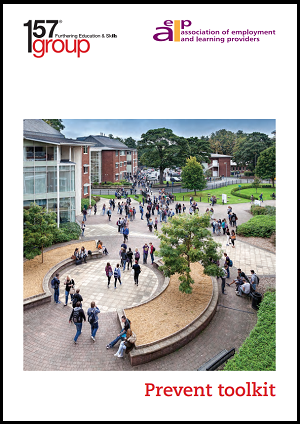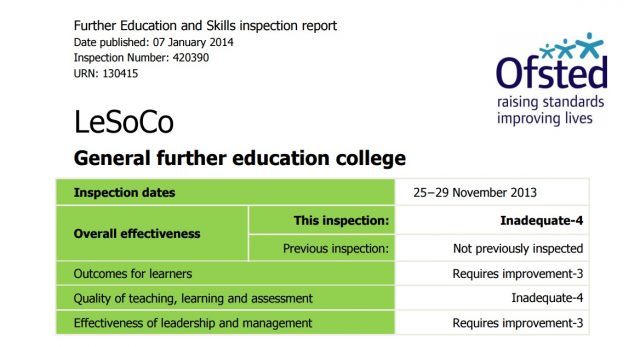Creative teaching and the role of research were discussed at the New Bubbles Learning Revolution Conference, which also saw calls for Ofsted to be abolished.
Delegates heard from TV scientist Professor Robert Winston, a range of academics and principals as well as current and former Ofsted inspectors at the lively conference near Heathrow, London.
Among the speakers was also Professor Frank Coffield, of the Institute of Education, who attacked the education watchdog’s “much-vaunted independence” as a “joke”.
He said the sector should “abolish or transform Ofsted”.
“We are wasting £156m of our money on Ofsted,” he said.
“The role of Ofsted at present is to force teachers to comply with government policy.”
“[Sir] Michael Wilshaw thinks the big question is ‘Is the FE system fit for purpose?’… he should be asking is, is Ofsted fit for purpose? Because I don’t think it is.”
Education management consultant Trevor Gordon was more cautious but acknowledged the current inspection system meant “increasingly creativity is being stifled”.
He said when he visited providers “I look at the creative component and competence, and the technical competence”.
He said: “I don’t knock Ofsted but because of some of the impositions on teachers, there’s an over-preponderance of technical and not a lot of creativity.”
Ofsted inspector Paul Joyce, however, rejected the idea that Ofsted was failing to reward teaching which developed learners beyond the qualification.
In his advice to providers on securing an outstanding grading, he said providers should ensure teaching, learning and assessment were “of the highest quality” but they should also “develop the whole person, including literacy and numeracy skills, and wider skills learners need to help them progress to their next steps”.
“Don’t simply focus on delivering to enable students to achieve a qualification aim,” he said.
Professor Winston agreed that “inspirational” teaching was important to raise the aspirations of learners.
Despite being a geneticist, Professor Winston said in teaching, nurture was really better than nature.
“It’s partly personality, it’s partly gender, it’s partly ethnic background — a whole range of issues which come into that nurture equation,” he said.
“And it stands to reason a standard learning is not going to be suitable for all those personalities.”
He added: “The inspirational teacher, the research shows, actually makes a very big difference to how young people learn.
“What we have to do is to try to persuade ourselves and those people who measure us, that that’s actually rather more important than some of the other measurements which are generally in the public sector.”
He warned unless changes were made, UK education would be “fixed into a system which actually can’t deliver what we would be capable of delivering”.
He added: “It’s crazy in government, we have two departments looking after education which don’t talk to each other — BIS [the Department for Business, Innovation and Skills] and DfE [Department for Education] and they’re both dysfunctional and that’s a big issue for us.
“What they do is set these sorts of targets without thinking of the underlying mechanism.
“And that’s what we fundamentally have to change in education, because what we’re leaving young people with is a lack of aspiration and that gets bred in and built into the system that we have.”
Professor Susan Wallace, of Nottingham Trent University, said a lack of imagination could often account for poor performance.
She said: “Historically some of the attitudes about social class and curriculum that were prevalent in the 19th Century have thrown a very long shadow and we’re still living it in FE,” she said, warning this attitude could still be seen in the modern-day focus on employer needs.
“If the right people aren’t forming the curriculum, there is a danger that the vocational curriculum does become something that’s sterile, that’s made to serve the needs of industry of the economy, but not the needs of the learner.
“And it may be that which lies beneath some of the disengaged and disaffected learners that we meet.”
Teaching expert Geoff Petty pointed to his own research to back up the other speaker’s comments on teaching.
“Using the best methods of teaching can double the impact an average teacher has on student results,” he said.
He added: “We’ve got leadership in education wrong. We should be thinking of them as teachers.”
He highlighted a list of features of a teacher-leading style, including interpreting test scores along with teachers, insisting teachers expect high proportions of their students to do well on learning outcomes and knowing that class atmosphere was conducive to learning, which he said research showed would have four times the impact of a more “hands-free” approach.
Looking to the uncertain future of FE, Mr Petty dismissed the traditional notion of FE as the “Cinderella sector”.
“We’re not the Cinderella sector,” he said.
“We’re the goose that laid the golden egg and pretty soon they’re going to realise that.”
Dr John Lea, of Canterbury Christchurch University, said research like Mr Petty’s could help to make the case for the sector.
“It’s one of those sectors where you can be really optimistic about something one moment, and really down the next,” he said.
“If we’re going to stay buoyant about FE we need to have evidence by our side, we need to be clear about why we believe what we believe and we need to keep pushing that argument forward based on the evidence.”
The event took place on Thursday March 26.
A grade four Coalition
Professor Frank Coffield turned the tables on the government during his animated discussion, inviting around 150 delegates to rate the Coalition using Ofsted ratings.
“What Ofsted grade would you give the government’s performance on the FE sector?” he asked.
Of the delegates there, none voted to give the government an outstanding or good grade, three attendees said it required improvement while the majority of other candidates slapped it with an inadequate grade.
If you were an inspector, what grade would you give the government? Let us know on Twitter via @FEWeek.






